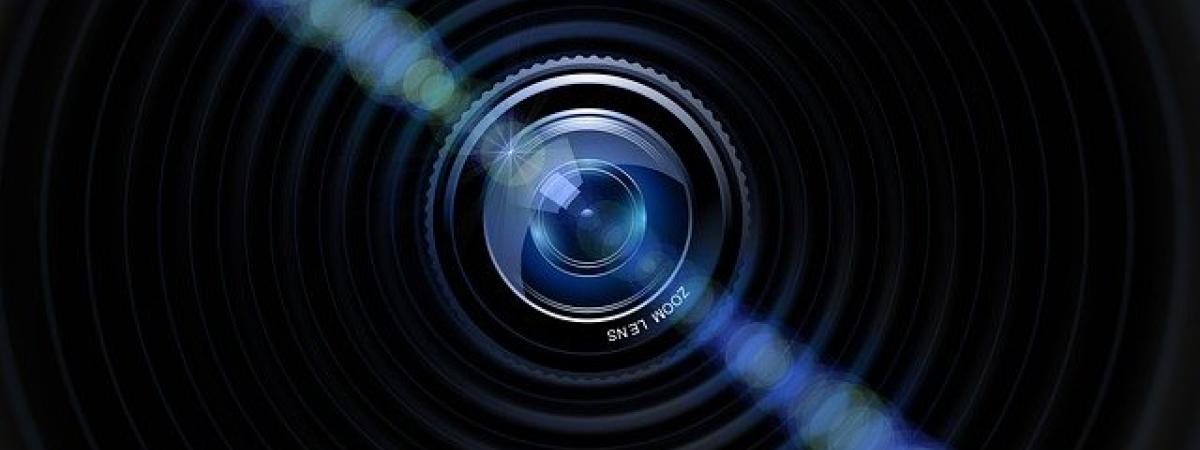No cameras in care homes

Should cameras be compulsory in care homes? One firm of solicitors, which specialises in care home negligence claims, is supporting a campaign called ‘Love Our Vulnerable and Elderly’ (LOVE), calling for CCTV systems to be installed in care and residential homes across the country. Their stated aim is to prevent cases of abuse and neglect of the elderly.
They advise family members to be on the lookout for signs of abuse such as pressure sores, malnourishment and dehydration, failure to administer medication, bruises and signs of fearfulness. They share powerful examples of failed care, such as the elderly lady with dementia and aphasia who was found slumped and burned against a radiator: the sensor mat and call bell that could have alerted staff to her condition were absent or ineffective. In another case, a frail elderly lady was roughly handled and had deodorant sprayed in her mouth.
Such stories sicken me, and of course there should be zero tolerance for such abuse. However, as a nurse in a care home, I have a lot of concerns about cameras.
The Big Brother effect
In George Orwell’s novel, Nineteen Eighty-Four, every citizen is under constant surveillance, mainly by telescreens: something seen as an invasion of privacy and an abuse of government power. Big Brother also watches over a handful of minor celebrities on the reality TV show: it makes for awkward viewing. Children are taught that it’s rude to stare but CCTV in nursing homes would enable children to watch their parent’s every move.
How would you feel if you found out that a camera had been secretly filming you for the last 24 hours?
It’s difficult enough when you are just being watched being you, but it’s terrifying when your confusion, incontinence and catheterisation might be on the big screen. Compare revenge porn, the sexually explicit portrayal of one or more people distributed without their consent via any medium. Whilst differently motivated, the filming of elderly residents in stages of undress without their consent should raise concern.
What’s more, a precious therapeutic relationship can develop between elderly residents and the care staff: private conversations can take place when trust is earned; sometimes even family members are discussed in confidence. Care home cameras would curtail such conversations.
Old age is a time of loss, perhaps of your home, your independence, your spouse, your mobility, your memory, your continence, your eyesight and your health. Knowing that a move to a care home would rob you of your privacy would make the transition even more difficult.
Sights to make you squirm
My concerns about cameras extend beyond those of the subject being filmed. The effect on the family members watching their parent receiving intimate care, or showing signs of confusion or aggression, should not be underestimated.
I have witnessed all manner of behaviour from elderly patients, and sometimes it’s heart-breaking to see. I think of one elderly resident lying in a constant state of turmoil, calling throughout the night for her baby children (who are now of retirement age); I remember another scene in which a nurse heroically rescued a frail elderly patient from a room full of faeces after an episode of incontinence. As a nurse, I can help; as a daughter, it would be unbearable to see.
It’s not wrong to want to keep good memories of mum and dad. Bad memories, such as might be created from watching these cameras, are the hardest to forget. Try as you might, the philosopher Michel de Montaigne acknowledges that “nothing fixes a thing so intensely in the memory as the wish to forget it”.
Suspicious minds
And what about the effect on the good care home staff? A camera might catch an abuser, but it would challenge the morale of those doing an honest job.
Solicitors such as those supporting the ‘LOVE’ campaign imply that every bruise, missed medication, malnourishment and pressure sore results directly from abuse. As a nurse though, I know that elderly skin is fragile, medication and meals are often refused, and I can think of examples where pressure sores resulted despite excellent nursing care: it can be hard to maintain skin integrity in the face of immobility, poor appetite, incontinence and reduced circulation.
Identifying causes of bruises, pressure sores or weight loss is part of a good carer’s job: doctors, occupational therapists and tissue viability nurses can be called in to help solve these problems: not generally the police. But if the LOVE campaign teaches that all care home staff are potential criminals, a culture of fear and low morale will result. It can also be hard to love an elderly resident when hated by the family.
One website argues that “better community reduces crime, technology does not”. Instead of buying a camera and leaving mum alone, why not visit her, befriend the care staff and work to encourage them to do their valuable job to the best of their ability? In my experience, the majority of care staff are unsung heroes. What’s more, if funding allowed for increased levels of staffing, the rogue carer would have more eyes watching them – and fewer carers would be driven to breaking point, and possible unacceptable outbursts of anger towards our most vulnerable.
